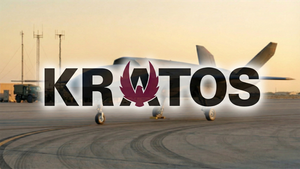New computing requirements boost demand for software that blends strengths of hybrid, public, private, sovereign clouds, new research says
The range of available cloud software platforms has expanded significantly in recent years, presenting enterprises with many options when formulating strategies for applications of AI and data transformation, according to new research from global AI-centered technology research and advisory firm Information Services Group (ISG) (Nasdaq: III).
The ISG Buyers Guides™ for Cloud Platforms, produced by ISG Software Research, provide the rankings and ratings of 30 software providers and their products to support cloud applications and operations. The research finds that cloud computing has evolved from a niche concept in the early 2000s, focused on public cloud services, into a core component of IT strategy that can take many forms depending on the data and AI needs of enterprises and their applications. Organizations can now choose from public, private, hybrid and sovereign cloud platforms by evaluating their own operational, financial and regulatory requirements, with many seeking hybrid solutions to blend the strengths of different types of platforms.
“By the end of 2027, more than 90 percent of enterprises will be using hybrid cloud and multicloud architectures to distribute cloud-native workloads,” said Jeff Orr, director, ISG Software Research. “This approach will allow them to maximize their operational agility, resilience and compliance.”
Each type of cloud platform addresses a specific challenge, making it best suited to a certain set of enterprises, ISG’s research finds. Public clouds offer cost-effective storage and computing capacity, serving the broad needs of enterprises to adapt their existing infrastructure. Private clouds cater to enterprises with specific security requirements. Sovereign clouds provide infrastructure in a particular geography, serving organizations that need to comply with stringent data privacy and protection regulations that are constantly evolving, especially in the EU.
As enterprise cloud software strategies become more sophisticated, hybrid cloud is quickly becoming the preference of companies seeking flexibility, the research finds. It provides the scalability of a public cloud while offering the security and control of a private cloud for specific workloads. Enterprises can distribute resources across different environments, which gives them the agility to respond swiftly to evolving business needs. The key characteristics they look for in hybrid cloud platforms are seamless integration and dynamic workload management. Companies can also engage with multiple cloud providers and distribute workloads across platforms, mitigating vendor lock-in while optimizing efficiency.
Cloud platform providers are using AI and ML to improve efficiency, resource management and collaboration, ISG finds. Recent innovations include AI/ML as a service, which provides essential resources for training AI models, allowing enterprises to develop advanced algorithms without the burden of managing complex infrastructure. IT teams are using Generative AI (GenAI) to create documentation for cloud integration and operation with existing enterprise systems. Within the next two years, Agentic AI may revolutionize cloud management by automating and orchestrating administrative tasks.
For its 2025 Buyers Guides for Cloud Platforms, ISG evaluated software providers across five platform categories — Cloud Platforms, Hybrid Cloud Platforms, Private Cloud Platforms, Public Cloud Platforms and Sovereign Cloud Platforms — and produced a separate Buyers Guide for each. A total of 30 providers were assessed: Akamai, Alibaba Cloud, AWS, Baidu AI Cloud, Bleu, Broadcom, China Unicom, Clever Cloud, CloudFerro, Delos Cloud, DigitalOcean, Euskaltel, Google Cloud, Hetzner Cloud, Huawei Cloud, IBM, IONOS, Kingsoft, kt cloud, Leaseweb, Microsoft, OpenNebula, Oracle, OVHcloud, SAP, Scaleway, Schwarz Digits, T-Systems, Tencent Cloud and Vultr.
ISG Software Research rates software providers in seven evaluation categories. Five are related to product experience: usability, manageability, reliability, capability, and adaptability. Two are related to customer assurance: validation and total cost of ownership and return on investment (TCO/ROI). Providers ranked in the top three for each evaluation category are named as Leaders. Within each platform category, those with the most Leader rankings are named as Overall Leaders.
The Overall Leaders of the 2025 Buyers Guides for Cloud Platforms were the following:
Cloud Platforms: Microsoft was the top Overall Leader, followed by Oracle and Google Cloud. Microsoft was designated a Leader in four evaluation categories and Oracle and Google Cloud in six each. All three Overall Leaders were rated Exemplary, along with AWS. No providers were rated Innovative.
Hybrid Cloud Platforms: Microsoft was the top Overall Leader, followed by Google Cloud and AWS. Microsoft was designated a Leader in three evaluation categories and Google Cloud and AWS in five each. All three Overall Leaders were rated Exemplary, along with Akamai, Alibaba Cloud, IBM, Oracle, OVHcloud, Scaleway and T-Systems. IONOS was rated Innovative.
Private Cloud Platforms: Microsoft was the top Overall Leader, followed by Google Cloud and Oracle. Microsoft was designated a Leader in three evaluation categories, Google Cloud in five and Oracle in six. All three Overall Leaders were rated Exemplary, along with Alibaba Cloud, AWS, Broadcom, IBM, OVHcloud, Scaleway and T-Systems. IONOS was rated Innovative.
Public Cloud Platforms: Microsoft was the top Overall Leader, followed by Google Cloud and AWS. Microsoft was designated a Leader in three evaluation categories and Google Cloud and AWS in five each. All three Overall Leaders were rated Exemplary, along with Akamai, Alibaba Cloud, Huawei, IBM, Oracle, OVHcloud, Scaleway, Tencent Cloud and T-Systems. IONOS was rated Innovative.
Sovereign Cloud Platforms: Microsoft was the top Overall Leader, followed by Oracle and Google Cloud. Microsoft was designated a Leader in four evaluation categories and Oracle and Google Cloud in six each. All three Overall Leaders were rated Exemplary, along with AWS, OVHcloud, Scaleway and T-Systems. Bleu and Delos Cloud were rated Innovative.
“Companies developing cloud strategies should assess and orchestrate their unique requirements and the potential implications of operating across cloud platforms,” said Mark Smith, partner and chief software analyst, ISG Software Research. “This research provides the ratings and insights to evaluate cloud platforms and products in terms of computing, functions, networking and storage. With it, enterprises can better understand how each product would allow them to use AI, data and software marketplaces, leading to more informed purchase decisions.”
The ISG Buyers Guides™ for Cloud Platforms are the distillation of more than a year of market and product research efforts. The research is not sponsored nor influenced by software providers and is conducted solely to help enterprises optimize their business and IT software investments.
Visit this webpage to learn more about the ISG Buyers Guides™ for Cloud Platforms and read executive summaries of each of the five reports. The complete reports, including provider rankings across seven product and customer experience dimensions and detailed research findings on each provider, are available by contacting ISG Software Research.
About ISG Software Research
ISG Software Research provides authoritative coverage and analysis of the business and IT software industry. It distributes research and insights daily through its user community, and provides a portfolio of consulting, advisory, research and education services for enterprises, software and service providers, and investment firms. Its ISG Buyers Guides™ help enterprises evaluate and select software providers through tailored assessments powered by ISG’s proprietary methodology. Visit https://research.isg-one.com/ for more information and to sign up for free community membership.
About ISG
ISG (Nasdaq: III) is a global AI-centered technology research and advisory firm. A trusted partner to more than 900 clients, including 75 of the world’s top 100 enterprises, ISG is a long-time leader in technology and business services that is now at the forefront of leveraging AI to help organizations achieve operational excellence and faster growth. The firm, founded in 2006, is known for its proprietary market data, in-depth knowledge of provider ecosystems, and the expertise of its 1,600 professionals worldwide working together to help clients maximize the value of their technology investments.
View source version on businesswire.com: https://www.businesswire.com/news/home/20251006275301/en/
By the end of 2027, more than 90 percent of enterprises will be using hybrid cloud and multicloud architectures to distribute cloud-native workloads. This approach will allow them to maximize their operational agility, resilience and compliance.
Contacts
Laura Hupprich, ISG
+1 203 517 3132
laura.hupprich@isg-one.com
Julianna Sheridan, Matter Communications for ISG
+1 978 518 4520
isg@matternow.com





